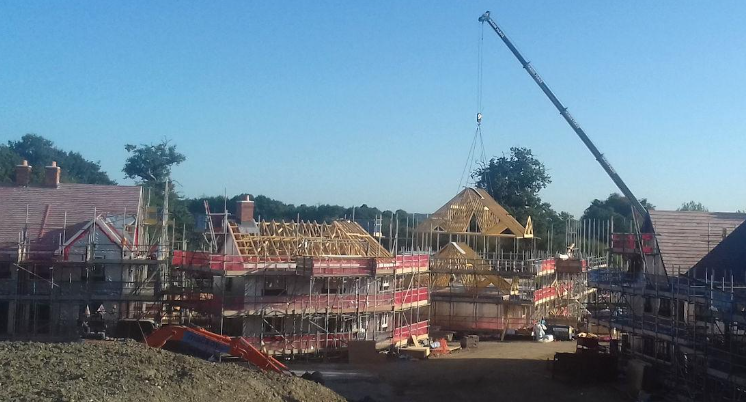
The Benefits Of Timber Frame Construction For New Build Houses
The traditional brick and mortar construction method is no longer the only way to build a new home. Timber frame construction has become increasingly popular for residential new builds in the UK, thanks to its many advantages over more traditional building methods. Let's take a closer look at how timber frame construction works and why it's an attractive choice for developers and main contractors involved in housing construction in the UK.
What is timber frame construction?
Timber frame construction is a type of prefabricated building system that uses load bearing timber components instead of masonry or steel framing. The method involves constructing the walls using panels made from pre-cut pieces of wood, which are then connected together with metal fasteners. Unlike traditional brick and mortar construction, timber frame homes require less time on site and can be built much faster than other methods, making them an attractive proposition for large-scale residential property developments.
Benefit 1: Speed and cost savings
Structural timber construction can save significant time compared with traditional masonry methods, making it appealing to developers working with demanding quotas and tight turnaround times. Construction times are typically around half that of brick-and-block builds, resulting in cost savings from reduced labour costs and improved efficiency. The cost per square metre can also be than that of other forms of construction, making it an accessible option for budget- and time-conscious clients.
Benefit 2: Environmental advantages and sustainability
Timber frames are more sustainable than traditional brick construction as they require less energy and raw materials in their manufacture – and even more so if the timber is sourced from FSC-approved ethically farmed woodland in the UK and Europe. Furthermore, the walls of timber frame houses are often much better insulated than those built with bricks, giving them superior heat retention properties, and allowing them to achieve higher energy ratings. This is good news for homeowners who want to reduce their carbon footprint and energy bills while still enjoying an attractive home with modern features.
Benefit 3: Structural durability
Timber frames offer excellent durability thanks to the use of treated timbers combined with moisture control systems such as vapour barriers and airtightness membranes. This means timber frame houses can last for many years without requiring major maintenance work or repairs.
Find out more
For developers and contractors looking for a durable yet budget-friendly housing solution, timber frames should certainly be considered as a viable option for new homes of all sizes. To find out more about timber frame construction and the benefits for your project, please call 0330 120 0776 today.

Click on the categories below to find out more about:

Connect with Us
Share this Page
More Posts
Recent Posts
- Breathe Easy, Work Safe: The RPE Every Site Worker Needs
- From Site to Strategy: Simon Mead Promoted to Associate Director at SC4
- SC4 named Cala Contractor of the Month, October 2025
- Why is Neurodiversity so important in Construction?
- Our Favourite Carpentry Project Of 2024: Cromwell Court, Old Basing
- Case Study: Timber Frame Installation in Netley Grange, Southampton